Turkey buzzards (also known as turkey vultures) can be a significant nuisance when roosting on your property. While these birds serve an important ecological purpose by removing carcasses and recycling nutrients back into the soil, their presence can cause property damage and create unsanitary conditions. This guide provides effective, legal, and humane methods how to get rid of turkey buzzards from your property.
Quick Picks: How to Get Rid of Turkey Buzzards
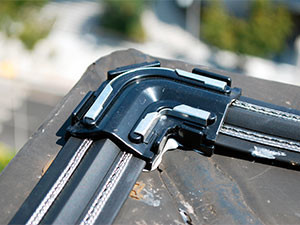
Most Effective
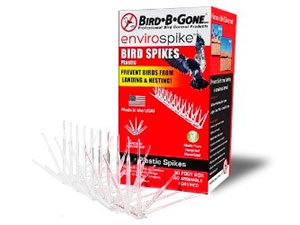
Budget-Friendly
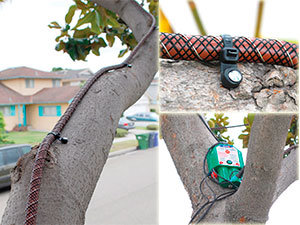
For Trees
Important Facts About Turkey Buzzards
Before attempting to remove turkey vultures from your property, it’s crucial to understand that these birds are protected by the Migratory Bird Treaty Act in the United States. This means it’s illegal to harm, kill, or remove their nests with eggs. However, you can use humane deterrents to discourage them from roosting on your property.
All turkey vultures in the USA are protected by the Migratory Bird Treaty Act. While you cannot kill or harm these birds, you are allowed to use humane deterrent methods to remove them from unwanted areas.
Turkey vultures (Cathartes aura) are large scavenger birds found throughout North and South America. They’re characterized by their red, featherless heads and dark brown-to-black plumage. With a wingspan of up to 6 feet, these birds are easily identifiable by their soaring flight pattern with wings held in a V-shape.
Distribution
Turkey vultures are found throughout the Americas, from southern Canada to South America. Northern birds may migrate south during winter months.
Habitat
These birds prefer open areas with nearby woods. They’re commonly found in grasslands, pastures, shrublands, suburban areas, and deserts.
Social Behavior
Turkey vultures are highly social, often roosting in large community groups of several hundred birds on dead trees, telecommunication towers, and buildings.
5 Steps to Get Rid of Turkey Vultures Humanely
While turkey vultures provide environmental benefits by cleaning up carrion and recycling nutrients, their presence on your property can cause damage and create unsanitary conditions. Here’s a comprehensive approach to deter them:
-
Remove Potential Roosting Sites
Check your roof for damaged areas that might attract vultures. Repair loose flashing, broken shingles, and seal any gaps, especially at roof overhangs. If vultures have already nested, carefully clean the area (wearing protective gear) and seal entry points to prevent their return.
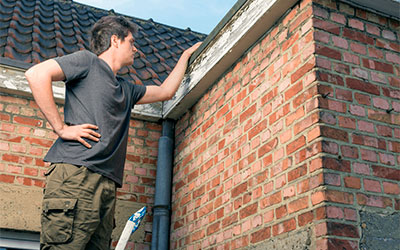
-
Eliminate Food Sources
Turkey vultures are attracted to properties with available food. Remove animal carcasses, secure garbage cans, and avoid leaving pet food outdoors. Keep your yard clean of debris that might harbor small animals that could become prey or carrion. If you have outdoor pets, consider feeding them indoors or removing uneaten food promptly.
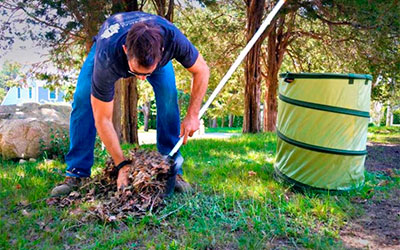
-
Install Motion-Activated Deterrents
Motion-sensor lights and sprinklers can effectively startle and deter vultures. Install these devices in areas where vultures tend to roost or gather. These work particularly well at night when the birds are settling in to roost.
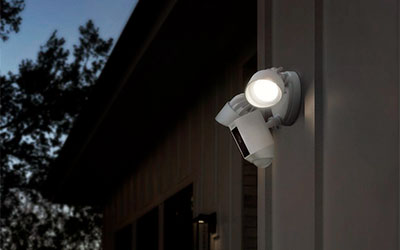
-
Protect Water Features
Turkey vultures are attracted to water sources. Cover ponds or fountains with wire mesh that allows smaller birds access while keeping vultures out. Keep water features clean and remove dead fish or algae promptly to avoid attracting vultures with odors.
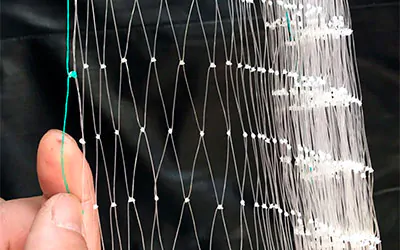
-
Consider Professional Help
If vulture problems persist despite your efforts, consider contacting wildlife removal experts who specialize in bird control. They have the expertise and equipment to humanely address severe vulture infestations.

Effective Deterrent Products for Turkey Vultures
While the steps above address the fundamental causes of vulture problems, specialized deterrent products offer additional protection. Here are the most effective options:
Bird-Shock Flex Track Systems
Electrified bird deterrents are among the most effective solutions for heavy, persistent birds like turkey vultures. These systems deliver a mild electrical shock that conditions birds to avoid the area without causing harm.
Bird-Shock Flex Track
Most EffectiveHow Does It Work
How to Use
- Install on railings, ledges, roof peaks, sign letters, AC units, window sills, and exposed beams
- Connect to a power supply or solar charger
- Available in multiple colors to match your structure
- Can protect up to 1,000 feet with a single charger
- Nearly invisible once installed
- Extremely effective against persistent, heavy birds
- Long-lasting and weather-resistant
- Humane and safe for birds
- No maintenance required once installed
- Higher initial cost than other deterrents
- Professional installation recommended
- Requires power source (standard outlet or solar)
Bird Spikes
Bird spikes create uneven surfaces that prevent vultures from landing. They’re ideal for ledges, roof lines, parapets, and other flat surfaces where vultures typically perch.
Bird-B-Gone Enviro-Spike Bird Spike
Budget-FriendlyHow Does It Work
How to Use
- Install on ledges, parapets, signs, rooflines, and other flat surfaces
- Secure with screws, nails, glue, or cable ties depending on the surface
- Spikes have breakpoints to fit various lengths
- Can be installed in a single row or multiple rows for wider surfaces
- No assembly required
- Pre-drilled holes for easy installation
- Flexible design fits curved surfaces
- Weather-resistant and durable
- Cost-effective for large areas
- May require multiple rows for larger birds like vultures
- Not as discreet as some other options
- May not be suitable for some architectural aesthetics
Tree-Shock System
When vultures roost in trees on your property, the Tree-Shock system offers an effective solution that protects trees without harming them or the birds.
Tree-Shock System
For Trees
How Does It Work
How to Use
- Mount to branches using cable ties to form an outer protective shield
- Connect to a charger unit with lead-out wire
- Available in various lengths to accommodate different tree sizes
- Can be used with solar chargers for remote locations
- Preserves the natural appearance of trees
- Flexible design conforms to branch configurations
- Easy to install without specialized tools
- Effective against all bird species
- Won’t harm trees or birds
- Higher cost for large trees
- Requires periodic inspection to ensure proper functioning
- May need adjustments as trees grow
Audio Deterrents
Audio deterrents use predator calls and distress signals to create an environment that vultures perceive as dangerous. Products like the BroadBand PRO combine ultrasonic and audible sounds that are effective against vultures while remaining mostly unnoticeable to humans.
Tips for Using Audio Deterrents:
- Position devices where vultures tend to gather
- Use in combination with visual deterrents for maximum effectiveness
- Vary the timing and patterns to prevent birds from becoming accustomed to the sounds
- Consider neighbors when positioning outdoor audio devices
Special Considerations for Florida Homeowners
Florida residents face particular challenges with turkey vultures, where these birds often damage vehicles by chewing rubber components and cause extensive property damage.
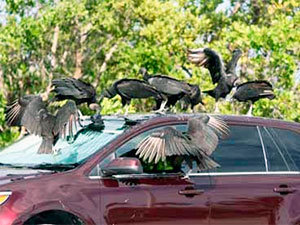
Vultures can damage vehicles by pecking at rubber seals and windshield wipers
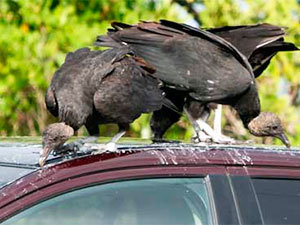
Car damage from vultures can be expensive to repair
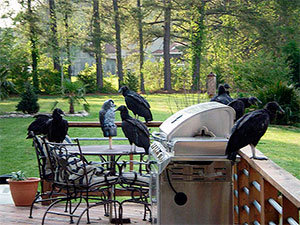
Large gatherings of vultures can overwhelm Florida properties
Protecting Vehicles from Vulture Damage
Florida homeowners should take extra precautions to protect vehicles:
- Use car covers specifically designed to resist bird damage
- Park in garages or covered areas whenever possible
- Install motion-activated sprinklers near parking areas
- Apply vulture deterrent products around parking spaces
- Consider vinyl or silicone protectors for windshield wipers and rubber seals
Protecting Apartment Buildings and Balconies
For apartment residents dealing with vultures on balcony railings:
| Problem Area | Recommended Solution | Installation Notes |
|---|---|---|
| Balcony Railings | Bird-Shock Flex Track | Available in multiple colors to match railings; virtually invisible once installed |
| Balcony Edges | Bird Spikes | Use adhesive for temporary installation that won’t damage property |
| Balcony Ceilings | Bird Netting | Install with tension to prevent birds from nesting |
How to Protect Trees from Vulture Roosting
When vultures choose trees on your property for roosting, they can cause significant damage and create unsanitary conditions. Here are effective solutions to protect your trees:
Tree Protection Options
- Tree-Shock System: As detailed above, this is the most effective and aesthetically pleasing solution for tree protection.
- Bird Netting: For smaller trees, bird netting can be installed to physically prevent vultures from accessing branches.
- Scare Tactics: Hanging reflective items (like old CDs or specialized reflective tape) in trees can temporarily deter vultures.
- Noise Deterrents: Strategic placement of wind chimes or other noise-making devices in trees can discourage roosting.
- Habitat Modification: Selective pruning to reduce horizontal branches can make trees less appealing to roosting vultures.
Frequently Asked Questions
Is it legal to remove turkey vultures from my property?
Turkey vultures are protected under the Migratory Bird Treaty Act. While it’s illegal to harm them or disturb active nests with eggs, you can legally use humane deterrents to discourage them from roosting on your property.
Any deterrent methods should be non-lethal and designed to encourage the birds to relocate without causing harm or distress. These methods can include visual deterrents, such as reflective objects or decoys, and auditory signals that mimic predator calls. Additionally, using natural repellents can create an environment that is less appealing to starlings. It’s essential for property owners to learn how to remove starlings humanely to ensure both the safety of the birds and the integrity of their habitat.
Why are vultures attracted to my property?
Vultures may be attracted to your property for several reasons: available food sources (including small animals, garbage, or pet food), suitable roosting sites (trees, roofs, water towers), water sources, or thermal updrafts that facilitate soaring.
Identifying and eliminating these attractants is an important first step in vulture management.
Do vultures carry diseases?
While vultures’ digestive systems actually kill many bacteria found in carrion, their droppings can contain pathogens. Their presence can pose potential health risks, especially in large numbers, and their droppings can damage property over time.
Always wear protective gear when cleaning areas contaminated with vulture droppings.
How long will deterrents be effective?
The effectiveness of deterrents varies. Physical barriers like spikes and shock tracks provide long-term protection. Visual and audio deterrents may become less effective as birds acclimate to them, so rotating different methods can improve results.
Consistent application and a multi-method approach typically yield the best long-term success.
Will removing one roosting site just move vultures to another location on my property?
Possibly. For best results, implement a comprehensive approach that addresses all potential roosting areas simultaneously and removes attractants like food and water sources.
A property-wide strategy will prevent vultures from simply relocating to another convenient spot on your land.
Can I use decoys to scare away vultures?
Yes, predator decoys like owl or hawk figures can temporarily deter vultures. However, vultures are intelligent birds and may become accustomed to stationary decoys over time.
For best results, move decoys regularly and combine them with other deterrent methods.
How do I protect my vehicle from vulture damage?
To protect vehicles, use car covers specifically designed to resist bird damage, park in covered areas when possible, and apply vulture deterrent products around parking spaces.
Some car owners have found success with bungee cords or tarps secured over windshield wipers and rubber seals, which are particularly vulnerable to vulture damage.
Conclusion: Effective Turkey Vulture Management
While turkey vultures play an important ecological role, their presence on your property can cause significant problems. By understanding their behavior and implementing the right combination of deterrents, you can effectively and humanely encourage these birds to find alternative roosting sites.
Remember that consistency is key. Vultures are intelligent and persistent, so a multi-faceted approach maintained over time will yield the best results. Start with addressing attractants like food sources and roosting sites, then implement physical deterrents like Bird-Shock Flex Track or Tree-Shock systems for long-term protection.
If your vulture problem persists despite these efforts, don’t hesitate to consult with wildlife management professionals who specialize in bird control. They can provide customized solutions for particularly challenging situations while ensuring compliance with wildlife protection laws.
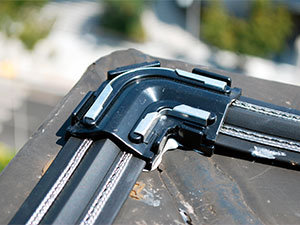
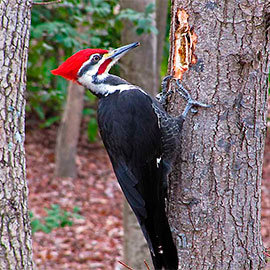
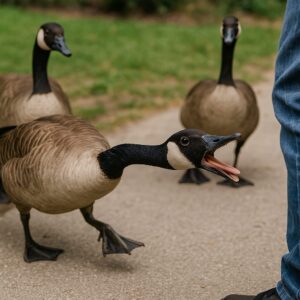
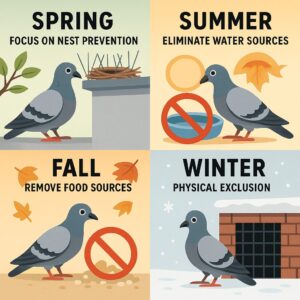

They are hanging out on my pool. They dont scare easily. Their claws will tear my pool tp pieces!
It’s ludicrous that these pests are protected. Congress needs to fix this stupid law.
We just started having vultures use our barn and house roof to rest on. I just read that a bear scare horn seems to work well with most birds. I am going to give that a try before we resort to flash bang shells.
why
I live in the woods and putting elelctric shock wires up on trees is not practical. the trees are tall and not easily accessible to electric outlets. got any other ideas?
The comments given for shock treatments in trees not practical as they chose rotted trees to perch in and unsafe to climb them
Mention the fine for killing them. It’s expensive to kill them!
Dog. Get a dog breed that barks at them. That may do it. Otherwise it lets you know to come out and scare them off. I know one guy who would shoot a BB gun at them. because a dozen birds would roost on his roof. Source of the problem was a neighbor’s barn where they were nesting in the attic. I would have snuck over at night and put up hardware cloth screen over the open windows.
I live in High Point NC an we have a vulture in our building. It’s in one of the rooms, an is a fairly large bird. Please can you give me resources so we can get rid of it PLEASE!!!
They’ve laid eggs [beautiful, by the way] and raised babies every year in a “hut” in my back yard/woods; every year a few more relatives arrive to do maternity patrol. I have had the hut dismantled/removed. Right now two couples are in my yard, doing the mating dance. I don’t want to hurt them, but don’t want them here. Noise seems to bother them. Pie pans? Help
What if they are eating the cat’s food ?